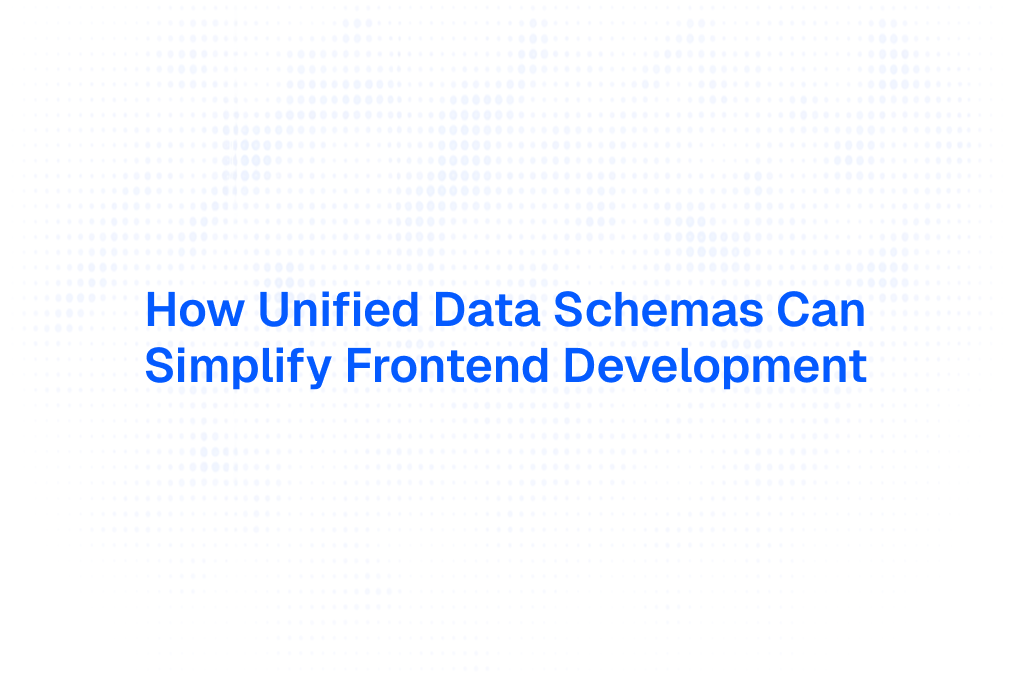How Uniblock Bridges the Gap Between Infra and AI
In the rapidly evolving landscape of blockchain technology and artificial intelligence (AI), infrastructure plays a pivotal role in enabling seamless integration and optimal performance. Uniblock, a leading RPC auto-routing and multi-provider solution, is uniquely positioned to bridge the gap between blockchain infrastructure and AI-driven applications. This article explores how Uniblock’s innovative approach to RPC routing, multi-cloud integration, and cost optimization empowers developers to build reliable, scalable, and intelligent Web3 applications.
Understanding the Infrastructure Challenges in Web3 and AI
Blockchain applications and AI systems both demand robust infrastructure capable of handling high volumes of data, low latency, and uninterrupted uptime. However, traditional blockchain RPC (Remote Procedure Call) providers often struggle with downtime, latency spikes, and vendor lock-in, which can severely impact AI-powered Web3 apps that rely on real-time data processing and decision-making.
RPC downtime is more than just an inconvenience; it directly translates to lost transactions, degraded user experience, and increased operational costs. For AI applications that analyze blockchain data or execute smart contracts autonomously, even brief outages can lead to incorrect decisions or missed opportunities.
Moreover, the complexity of integrating multiple RPC providers and cloud services often creates bottlenecks for developers aiming to leverage AI capabilities on decentralized networks. This is where Uniblock’s multi-provider RPC routing and multi-cloud proxy (MCP) solutions come into play, offering a seamless, reliable, and cost-effective infrastructure foundation.
In addition to addressing downtime and latency issues, the integration of advanced analytics and machine learning algorithms into the infrastructure can significantly enhance the performance of Web3 applications. By utilizing predictive analytics, developers can anticipate and mitigate potential bottlenecks before they impact user experience. This proactive approach not only improves the reliability of the applications but also empowers developers to make data-driven decisions that optimize resource allocation and enhance overall system efficiency.
Furthermore, the rise of decentralized finance (DeFi) and non-fungible tokens (NFTs) has amplified the need for scalable infrastructure that can adapt to fluctuating demand. As these sectors continue to grow, the underlying infrastructure must evolve to support increased transaction volumes and complex interactions among various blockchain networks. By leveraging innovative solutions such as Uniblock’s multi-cloud architecture, developers can ensure their applications remain agile and responsive, ready to capitalize on emerging trends and user needs in the rapidly changing landscape of Web3 and AI.
Uniblock’s RPC Auto-Routing: Enhancing Reliability and Performance
What is RPC Auto-Routing and Why It Matters
RPC auto-routing is a technology that intelligently directs blockchain API requests to multiple RPC providers based on real-time performance metrics such as latency, availability, and cost. Instead of relying on a single RPC endpoint, Uniblock’s auto-routing dynamically selects the optimal provider, ensuring minimal downtime and faster response times.
For AI-driven Web3 applications, this means uninterrupted access to blockchain data and smart contract execution, which is critical for maintaining the accuracy and timeliness of AI algorithms. By distributing requests across multiple providers, Uniblock mitigates the risk of single-provider failures and balances load efficiently.
Failover vs Load Balancing: A Dual Approach to Resilience
Uniblock’s infrastructure intelligently combines RPC failover and load balancing strategies. Failover ensures that if one RPC provider becomes unavailable, requests are automatically rerouted to a healthy provider without manual intervention. Load balancing distributes requests evenly across providers to prevent any single endpoint from becoming a bottleneck.
This dual approach not only improves reliability but also optimizes resource utilization, reducing latency and operational costs. For AI applications, consistent data flow and low latency are essential for real-time analytics, predictive modeling, and automated decision-making.
Leveraging Multi-Cloud and Multi-Region Strategies for AI-Ready Infrastructure
The Role of Google MCP in Blockchain and AI Integration
Google’s Multi-Cloud Proxy (MCP) technology is revolutionizing how blockchain infrastructure scales and integrates with AI services. MCP enables seamless API orchestration across multiple cloud providers, enhancing redundancy, reducing latency, and offering cost savings.
Uniblock harnesses MCP to provide multi-cloud RPC routing, allowing Web3 applications to benefit from the strengths of different cloud environments simultaneously. This multi-cloud strategy ensures that AI models accessing blockchain data experience minimal latency and maximum uptime, regardless of geographic location or cloud provider outages.
Multi-Region RPC Routing: Speed and Redundancy at Scale
Latency is a critical factor for AI applications that require real-time blockchain data. Uniblock’s multi-region RPC routing directs requests to the nearest or fastest RPC endpoint across global data centers, reducing round-trip time and improving user experience.
Additionally, multi-region routing enhances redundancy by distributing traffic geographically, protecting against regional outages or network congestion. This global approach is vital for AI systems that operate on decentralized data and demand consistent performance worldwide.
Cost Optimization and Scalability: Making AI on Blockchain Affordable
Reducing RPC Costs with Auto-Routing
Blockchain API calls can become expensive at scale, especially for startups and projects with limited budgets. Uniblock’s auto-routing technology not only improves reliability but also optimizes costs by routing requests to the most cost-effective RPC providers without sacrificing performance.
By reducing RPC costs by up to 40%, Uniblock enables AI-powered Web3 applications to scale efficiently, handling millions of API calls without breaking the budget. This cost efficiency is crucial for AI developers who need to process large datasets and perform complex computations on blockchain data.
Scaling to Millions of API Calls Without Downtime
AI applications often require massive volumes of blockchain data for training, inference, and real-time decision-making. Uniblock’s multi-provider RPC aggregation supports horizontal scaling, allowing applications to handle millions of API calls seamlessly.
This scalability ensures that AI models receive timely and accurate data, which is essential for maintaining model accuracy and responsiveness. Moreover, Uniblock’s infrastructure automatically adapts to traffic spikes, preventing bottlenecks and outages that could disrupt AI workflows.
Comparing Uniblock to Other RPC Providers: Why Multi-Provider Solutions Excel
Single-Provider Risks and the Need for Multi-Provider Routing
Many blockchain projects rely on single RPC providers like Infura, Alchemy, or QuickNode, which can lead to vendor lock-in, higher costs, and increased risk of downtime. Uniblock addresses these issues by aggregating multiple RPC providers and auto-routing requests based on real-time conditions.
This multi-provider approach not only enhances reliability but also fosters competition among providers, driving down costs and improving service quality. For AI applications, this means a more resilient infrastructure that can adapt to changing network conditions and provider performance.
Uniblock vs QuickNode, Alchemy, and Infura
While QuickNode, Alchemy, and Infura are established RPC providers, Uniblock differentiates itself by offering an intelligent routing layer that integrates multiple providers into a single endpoint. This simplifies development and reduces operational complexity.
Developers benefit from Uniblock’s comprehensive monitoring, automatic failover, and cost optimization features, which are often lacking in single-provider setups. As AI and Web3 applications grow in complexity, Uniblock’s multi-provider architecture becomes a strategic advantage.
The Future of Blockchain Infrastructure: AI-Driven, Multi-Cloud, and Resilient
As blockchain and AI technologies continue to converge, infrastructure solutions like Uniblock will play an increasingly critical role. The future points toward AI-driven infrastructure management that leverages real-time analytics to optimize routing, cost, and performance dynamically.
Uniblock’s integration of multi-cloud proxies, multi-region routing, and intelligent auto-routing positions it at the forefront of this evolution. By bridging the gap between infrastructure and AI, Uniblock enables developers to build smarter, faster, and more reliable Web3 applications that can scale globally.
In conclusion, Uniblock’s innovative approach to RPC routing and multi-cloud integration offers a powerful foundation for AI-powered blockchain applications. Its focus on reliability, cost optimization, and scalability addresses the critical challenges faced by developers today, making it an indispensable tool in the Web3 ecosystem.
Ready to elevate your Web3 project with the cutting-edge infrastructure you just read about? Start building with Uniblock today and join over 2,000 developers who are already harnessing the power of our platform across 100+ chains. Say goodbye to vendor lock-in, reduce latency, and save on costs as you scale your dApps, tooling, or analytics with confidence. Uniblock is your partner in orchestrating a seamless, resilient, and AI-ready blockchain infrastructure. Let's build the future of Web3 together.
.svg)



.png)


